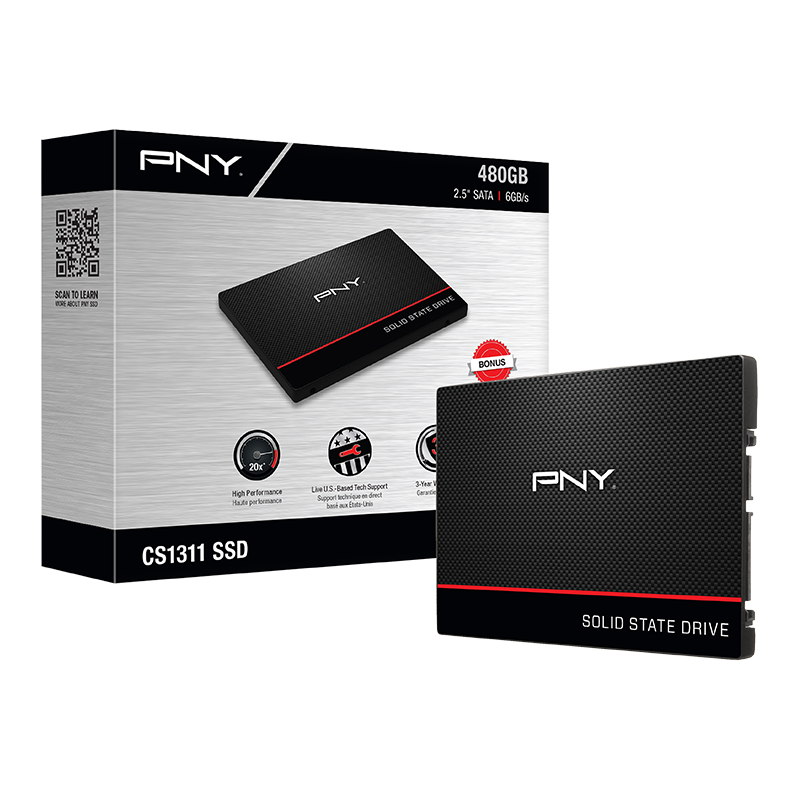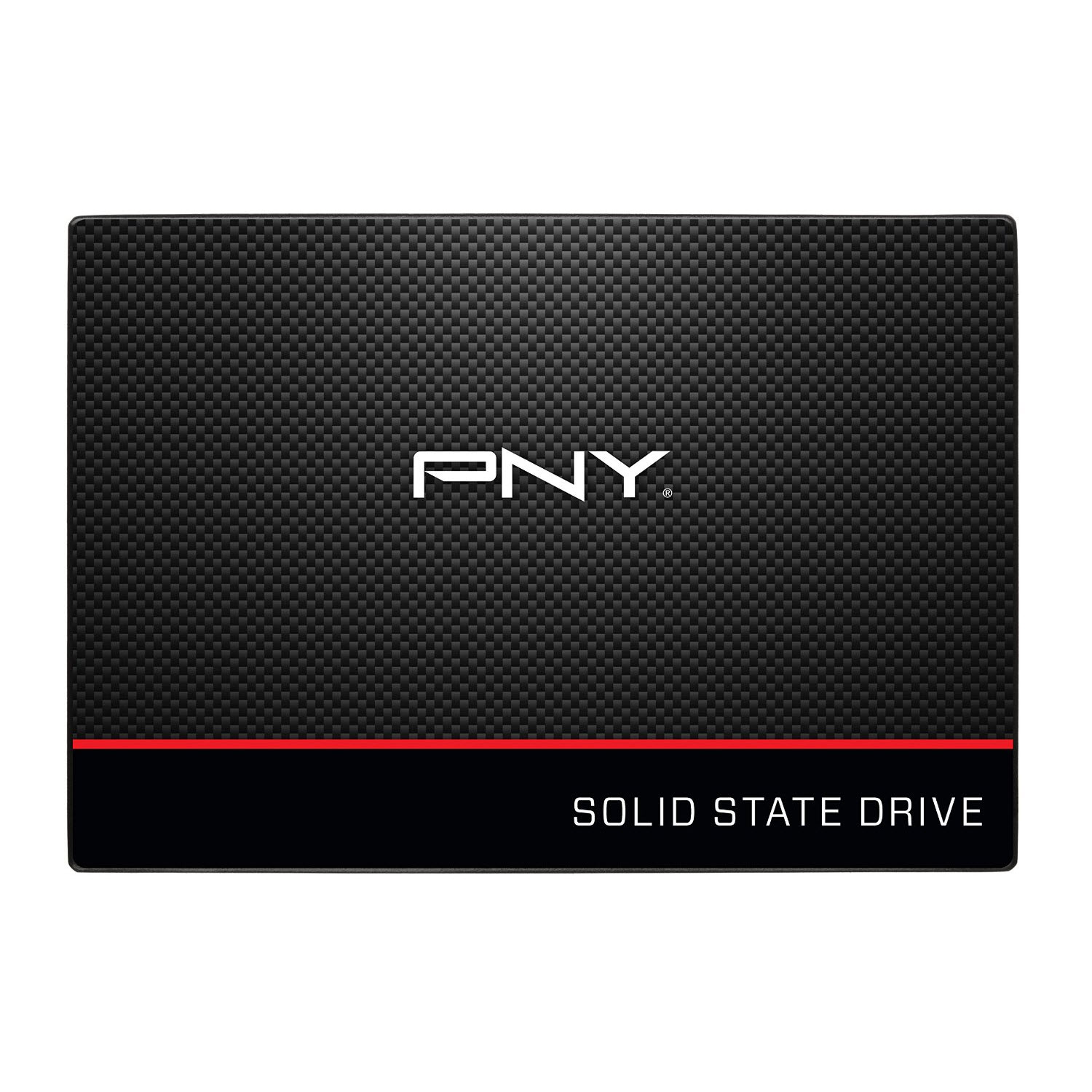Early Verdict
PNY makes some of the best SSDs on the market for companies without in-house controller IP or NAND flash fabrication. The two major components must come from outside companies, so PNY has to work with open-market hardware and make the best of what's available. The CS1311 SSDs are solid products that enable a wide range of uses, but they still do not outperform or out-value the Samsung 850 EVO.
Pros
- +
The PNY CS1311 SSDs raise the bar for Phison S10 products with TLC flash. The direct-to-die write algorithm increases performance where these SSDs were weak.
Cons
- -
Even though Phison has worked to address the issue for more than a year, random-read and -write performance still hampers the S10 controller. If PNY wants to make a run at Samsung based on performance alone, then the company needs to push for more random performance to help level the field.
Why you can trust Tom's Hardware
Specifications, Pricing, Warranty And Accessories
We recently published a review of the CS2211 SSD from PNY's premium XLR8 line. The CS2211 is aimed at gamers and enthusiasts, and uses Toshiba 15nm MLC flash. The CS1311 we're testing today employs Toshiba's 15nm TLC NAND for more value-oriented shoppers. PNY's PS3110-S10-powered drive uses Phison's new direct-to-die sequential write algorithm to increase performance, so we're anxious to see what it can do.
TLC-based SSDs from every company other than Samsung are slow compared to drives armed with MLC and SLC flash. In fact, they set SSD performance back several generations in some very common workloads. Not every application suffers, but you'll notice big software installations slow to a crawl, for instance. Depending on the flash used, you'll see sequential write speeds drop as low as 70 MB/s after a couple of seconds—that's less than a modern disk-based hard drive!
Phison is the first controller vendor aside from Samsung to address the issue. By using an approach called direct-to-die, sequential data fills the SLC buffer first, and then begins to write directly to the flash. Without the direct-to-die algorithm, information would pass to the small SLC buffer area and then "fold" into the NAND. The buffer needs to purge its data to the flash before accepting more. Usually this happens quickly, so you don't notice a pause during the transfer. But it does affect performance. By skipping over the buffer and writing straight to the NAND, sequential write performance more than doubles on high-capacity SSDs. Lower-capacity drives don't benefit as much, but they're still a lot faster in those operations.
The CS1311 uses Phison's new direct-to-die algorithm, but that's not its only compelling feature. When manufacturers realized that TLC-based SSDs were not popular with mainstream users, their prices dropped quickly. When you consider that value proposition and improved performance together, drives like the CS1311 start looking like solid additions to mid-range PCs.
Specifications
MORE: Best SSDs For The Money
MORE: Latest Storage News
MORE: Storage in the Forums
PNY released the CS1311 at four capacity points, and we're surprised to see a 120GB model in the group. Many companies have dropped that size altogether. Given 128Gb density, there are only eight dies in a 128GB-class SSD, which means write performance outside of the SLC buffer is very low. PNY rounds out its CS1311 family with more interesting 240GB, 480GB and 960GB models.
The performance claims differ slightly for each size. Sequential reads hold steady at 550 MB/s for all four models, while sequential writes range from 510 to 520 MB/s. Random I/O also varies a bit depending on the configuration you're looking at, but you won't be able to tell under real-world conditions.
Get Tom's Hardware's best news and in-depth reviews, straight to your inbox.
We detailed many of the Phison PS3110-S10 features in a controller-specific story. You can read more about the eight-channel controller here.
Pricing, Warranty And Accessories
The CS1311's strongest feature is its price. PNY is very aggressive here, achieving close to 25 cents per gigabyte for three of its four capacities. At those levels, TLC-based SSDs become more attractive to folks who might have previously eschewed them.
PNY covers its CS1311 family with a three-year warranty that doesn't seem bound by endurance. We searched through the company's stipulations on its website and couldn't find specific mention of a terabytes-written (TBW) limit or any strings tied to the WMI.
Unfortunately, PNY doesn't offer a storage utility apart from a firmware update tool. Phison does though, and it's readily available online. We confirmed that Phison's utility does work with the CS1311 SSDs. PNY does include Acronis True Image HD with this model, and the software key is located in the bundled paper manual.
A Closer Look
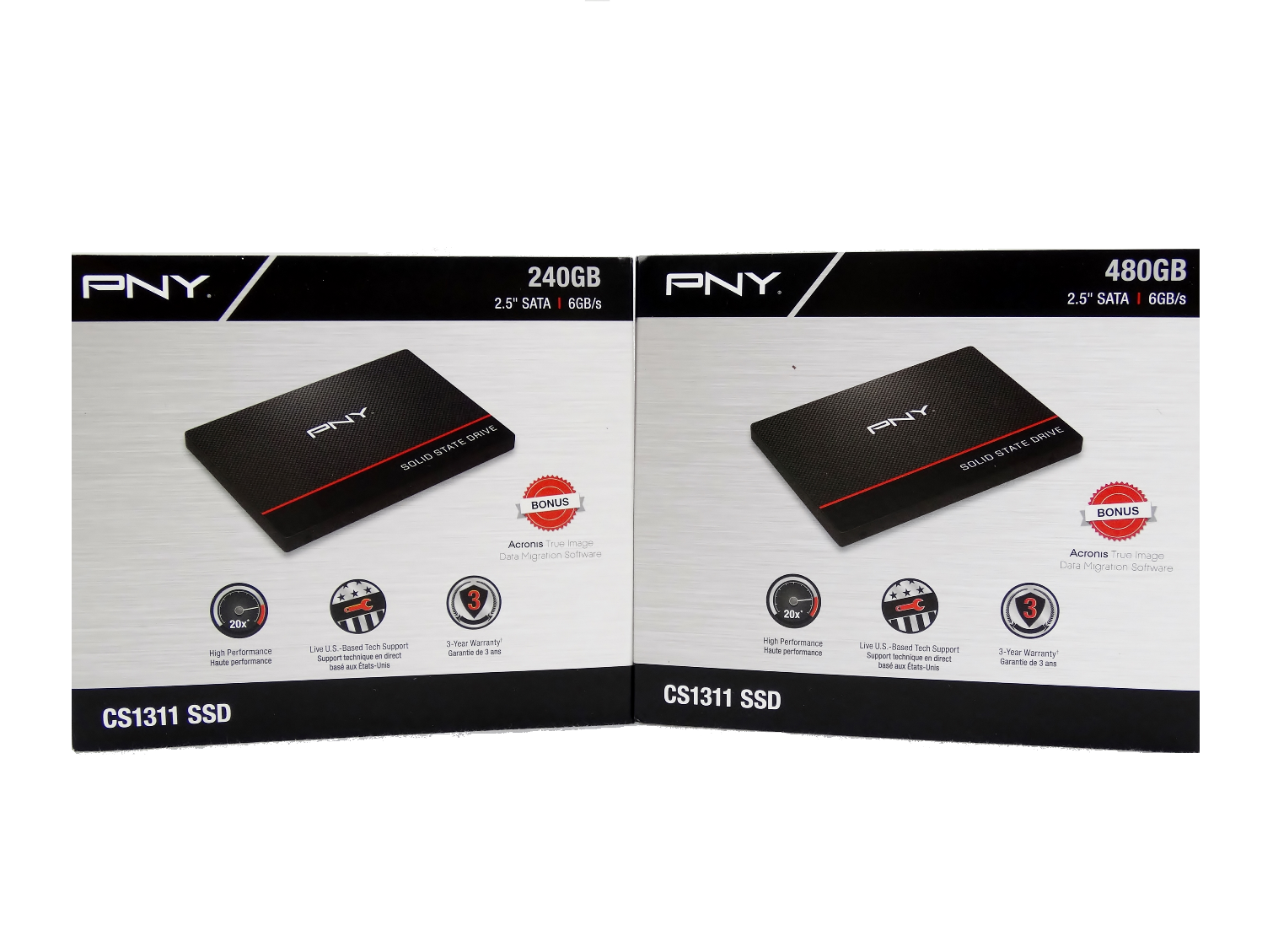
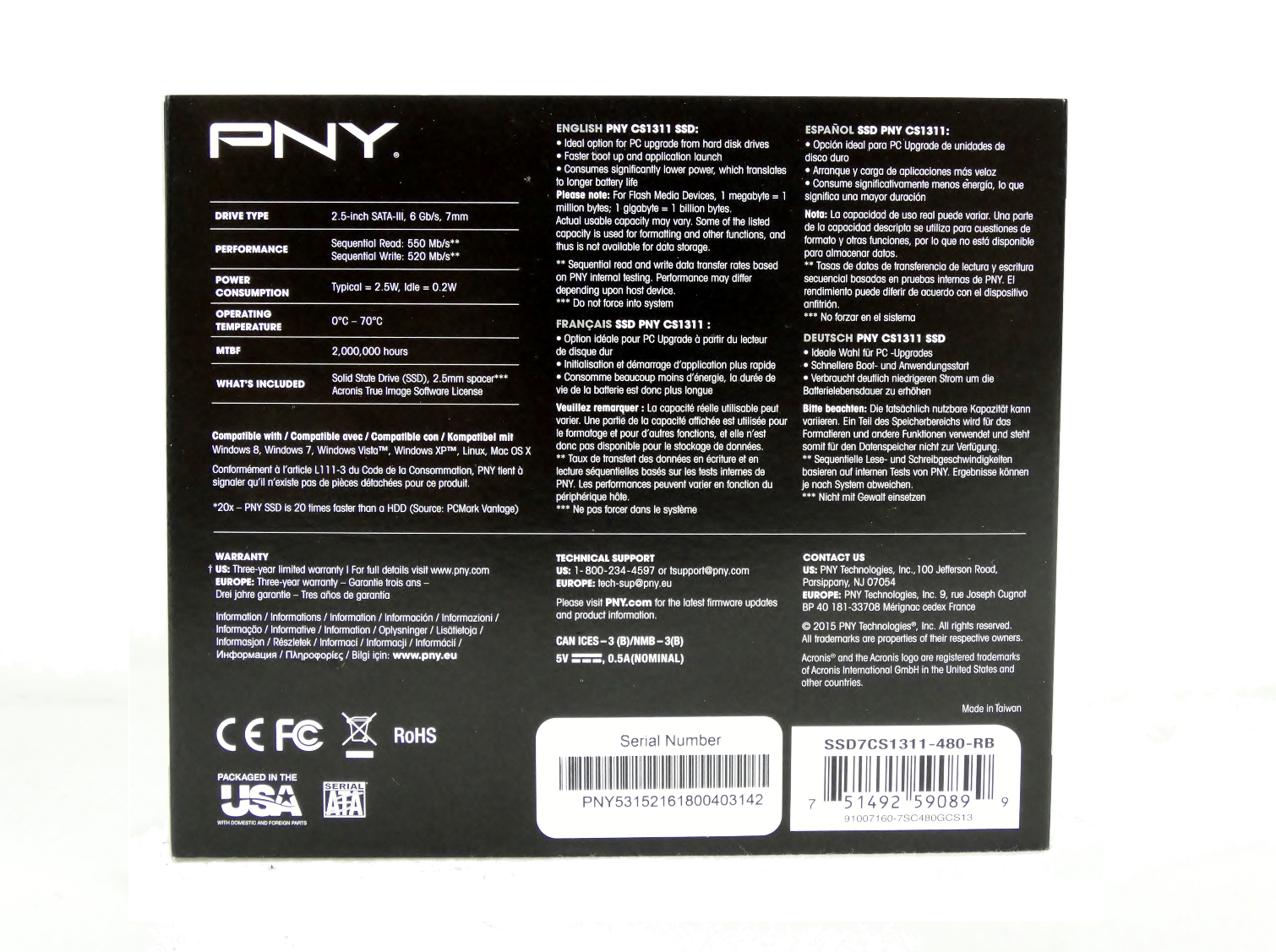
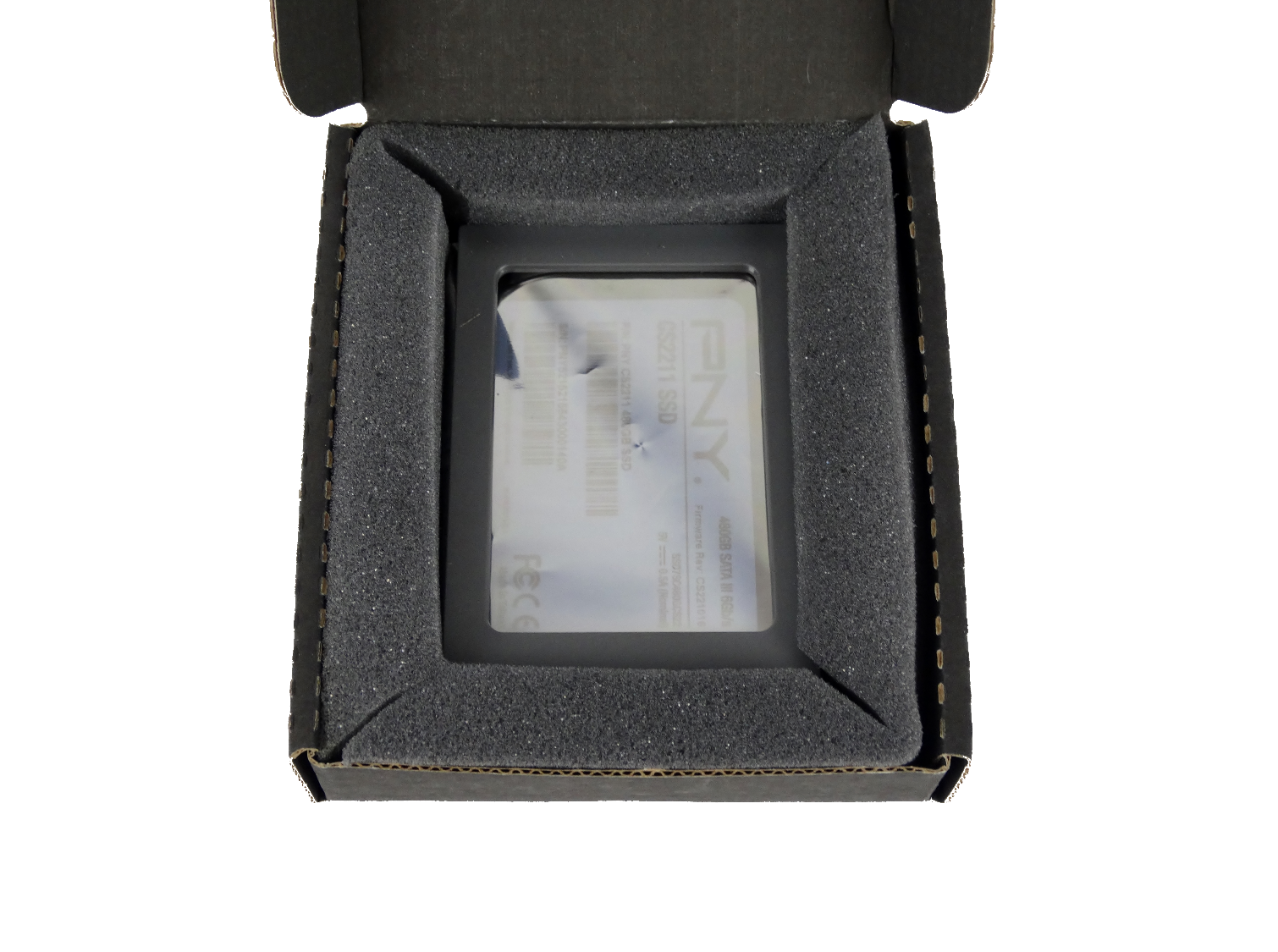
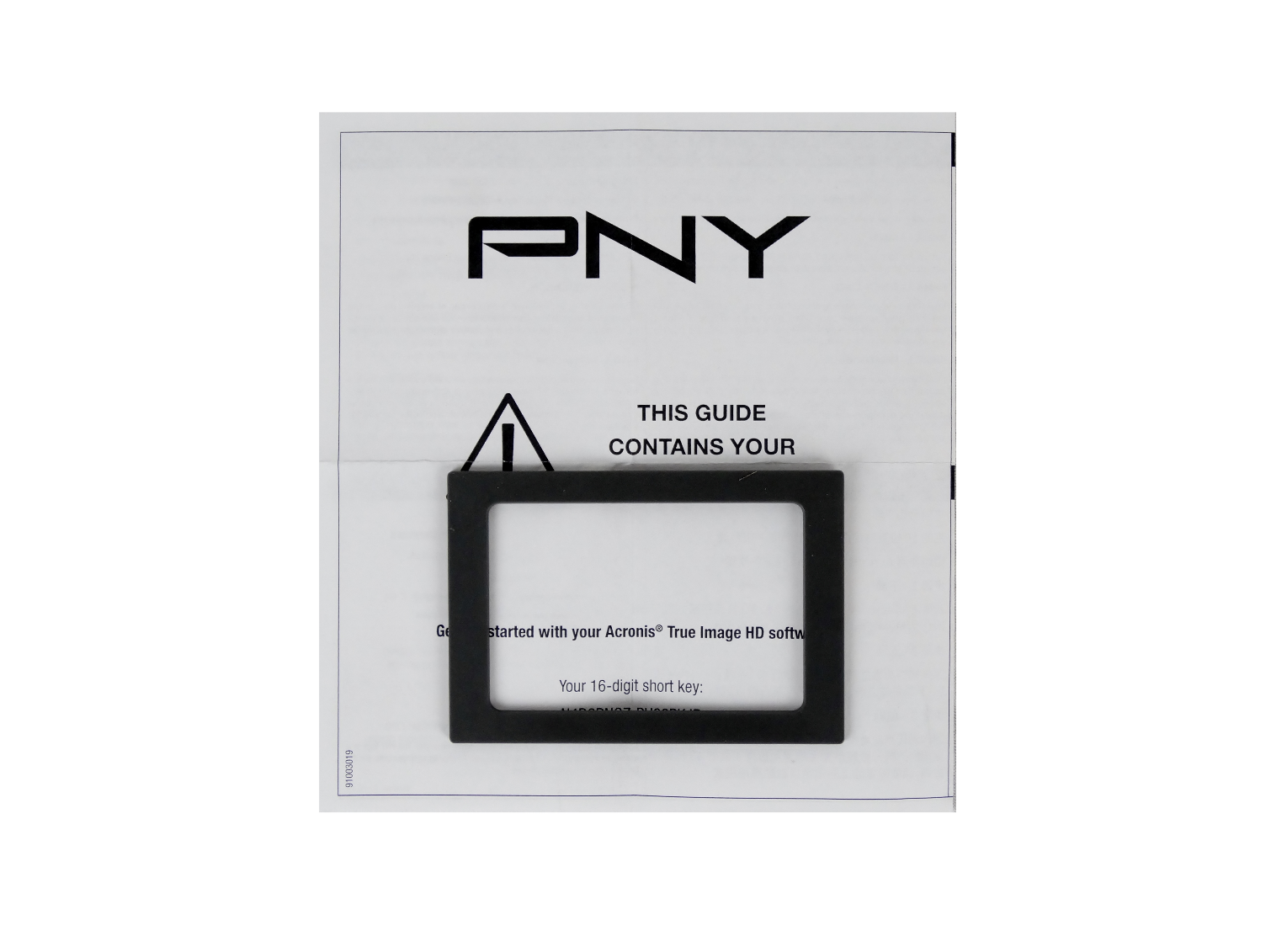
PNY sells SSDs online and in stores like Best Buy or Fry's Electronics. The company conveys a lot of information on its retail package, including some performance data that makes shopping in a retail environment easier.
The CS1311 doesn't include a lot of extras, though that's standard practice for low-cost SSDs these days. You get a paper product manual with a code for Acronis True Image HD, plus a 7mm to 9.5mm adapter.
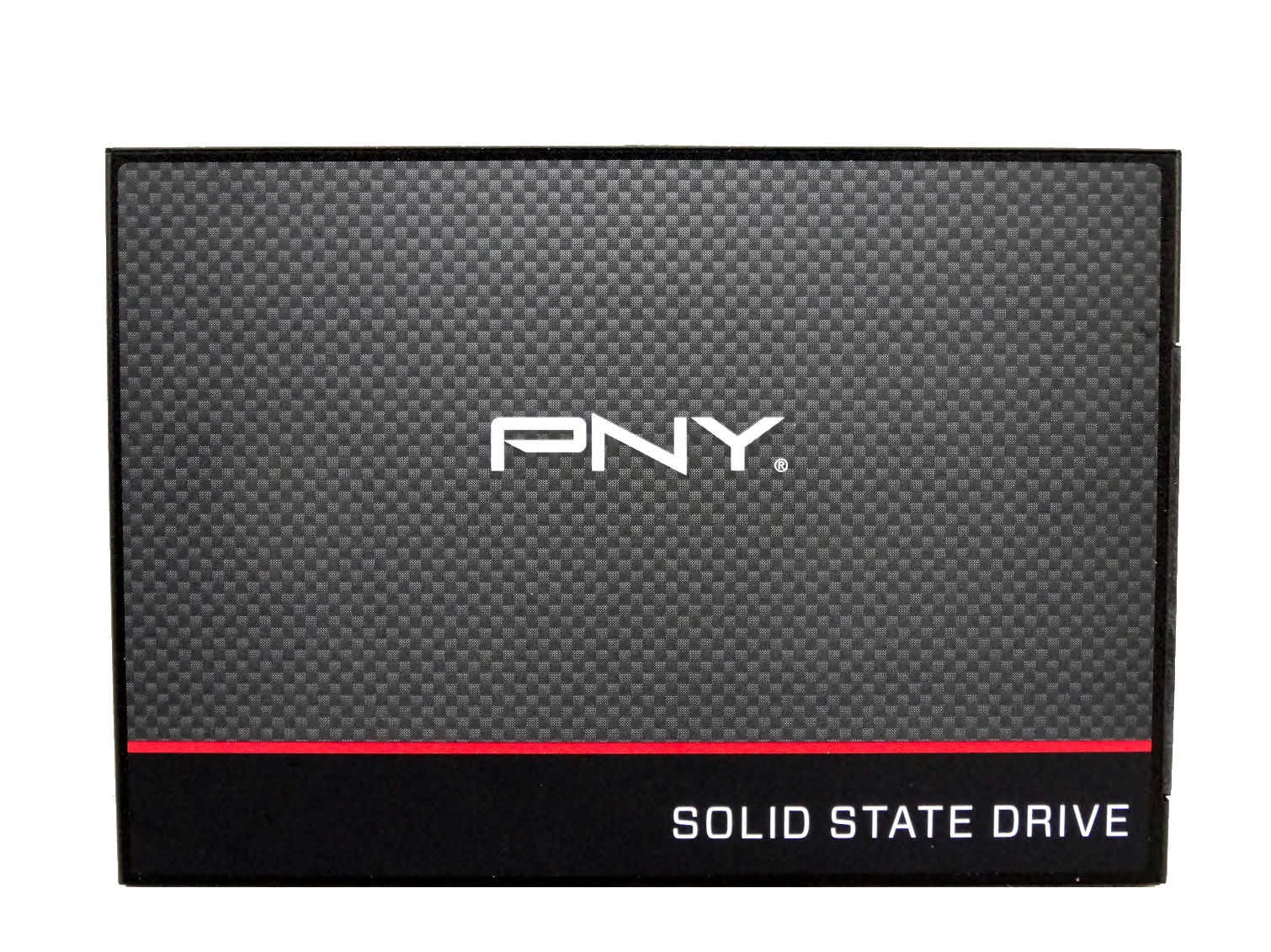
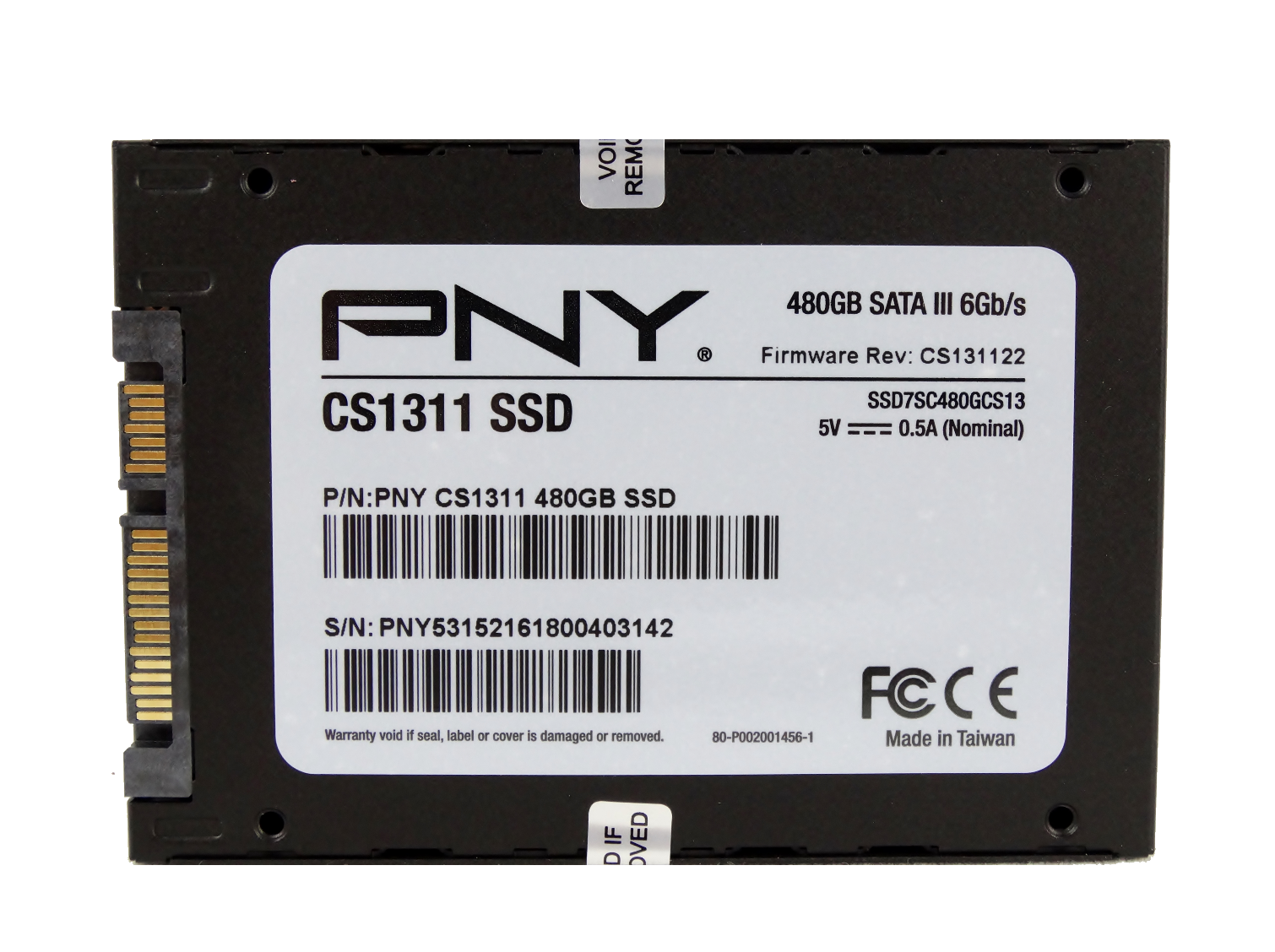
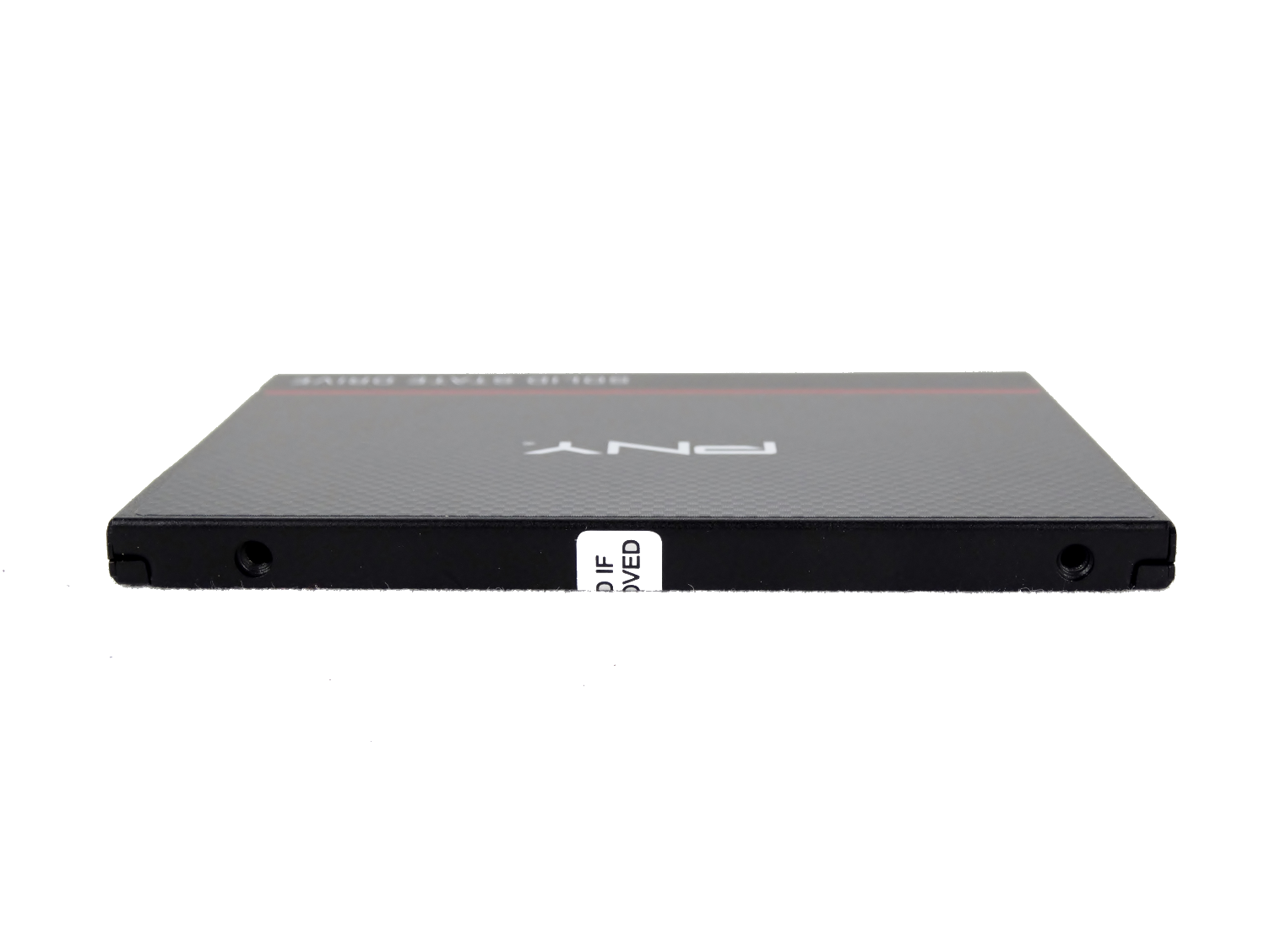
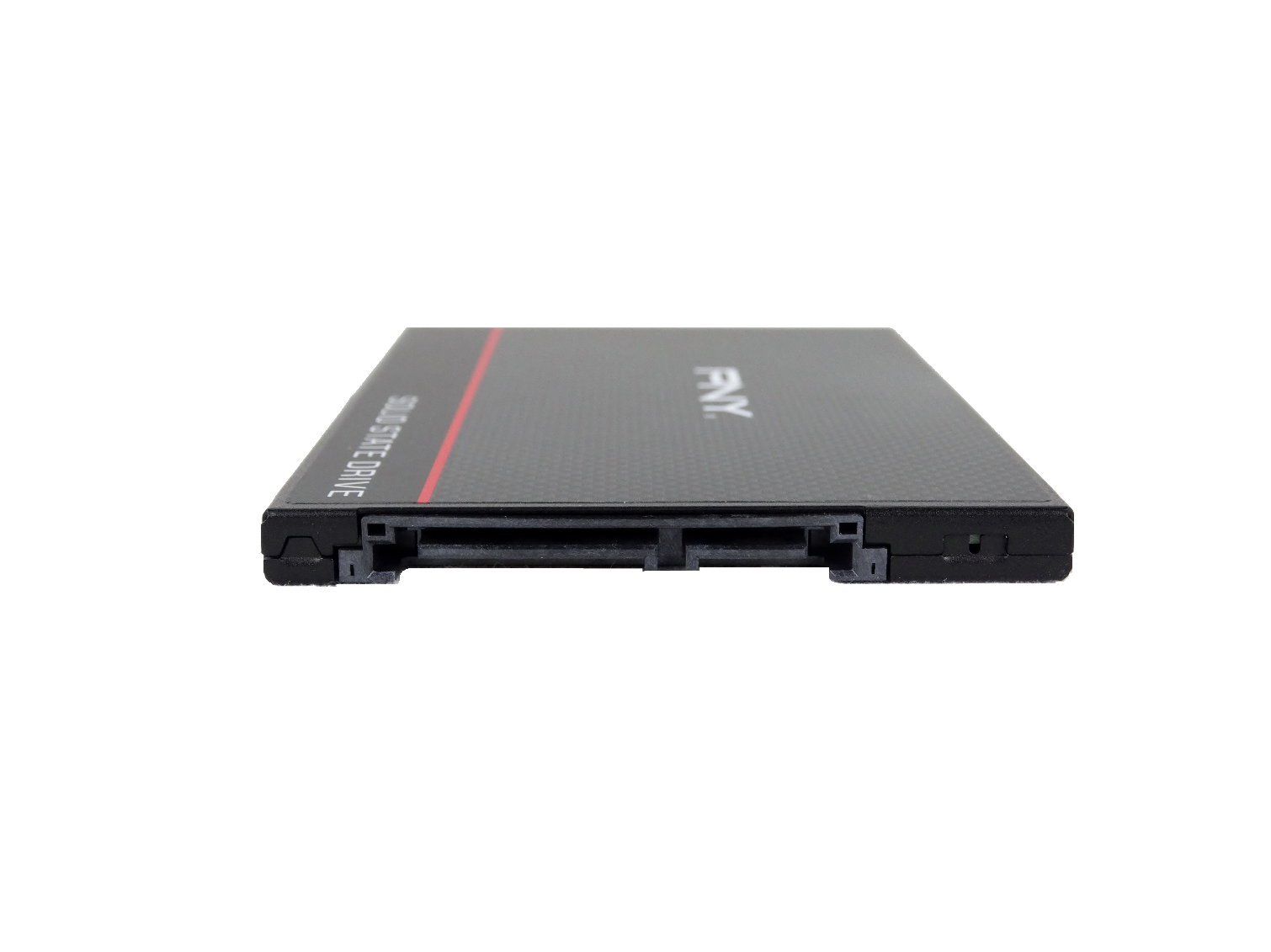
Not that it affects performance, but PNY's CS1311 is a good-looking piece of hardware. It employs a metal chassis with a graphic sticker on the front and another on the back with information printed on it. The back of the drive also has model and serial number info for warranty purposes.
Like most modern SSDs, the CS1311 fits in a 7mm-tall enclosure so it's compatible with the latest notebooks that require low-profile storage.
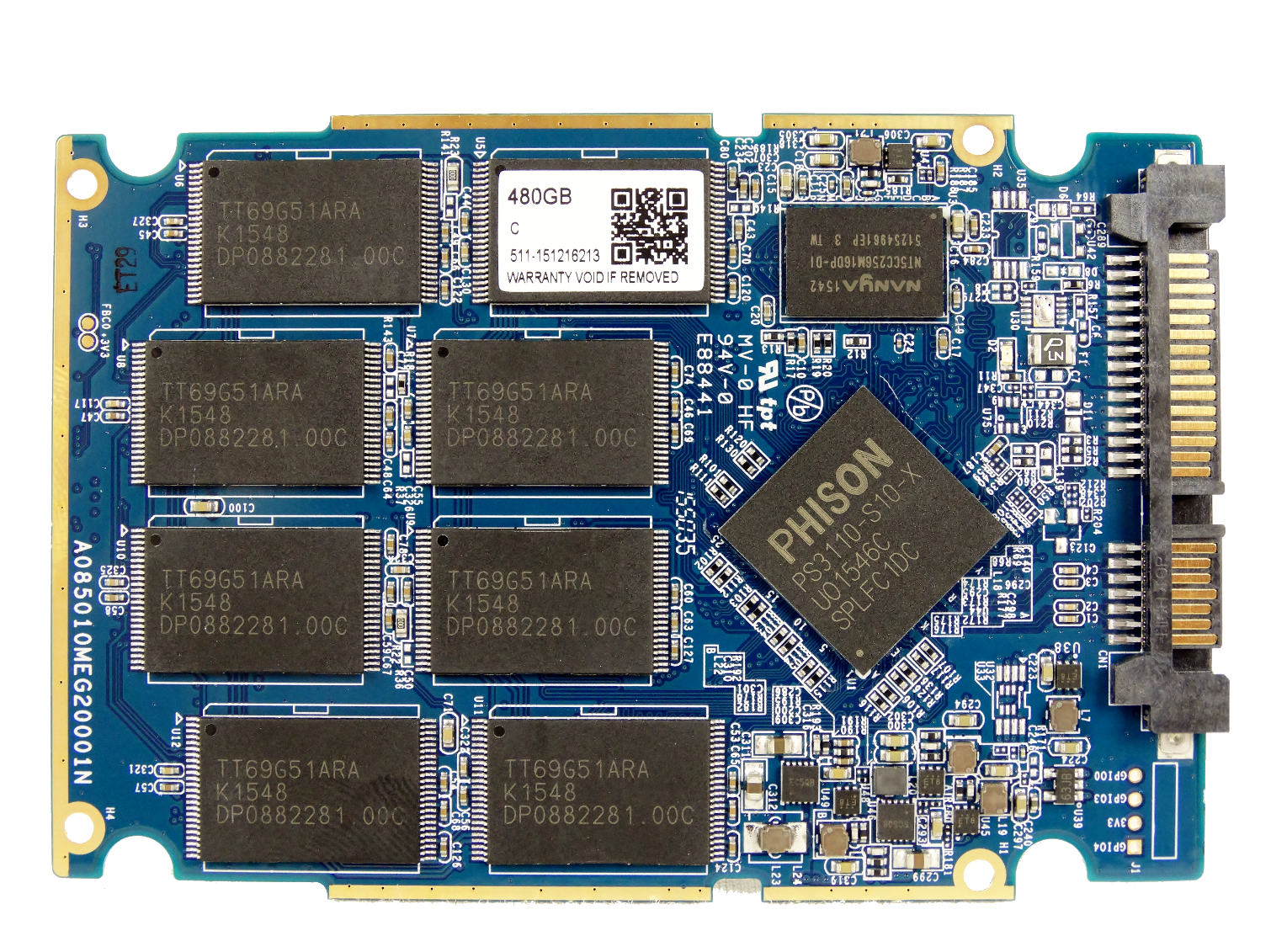
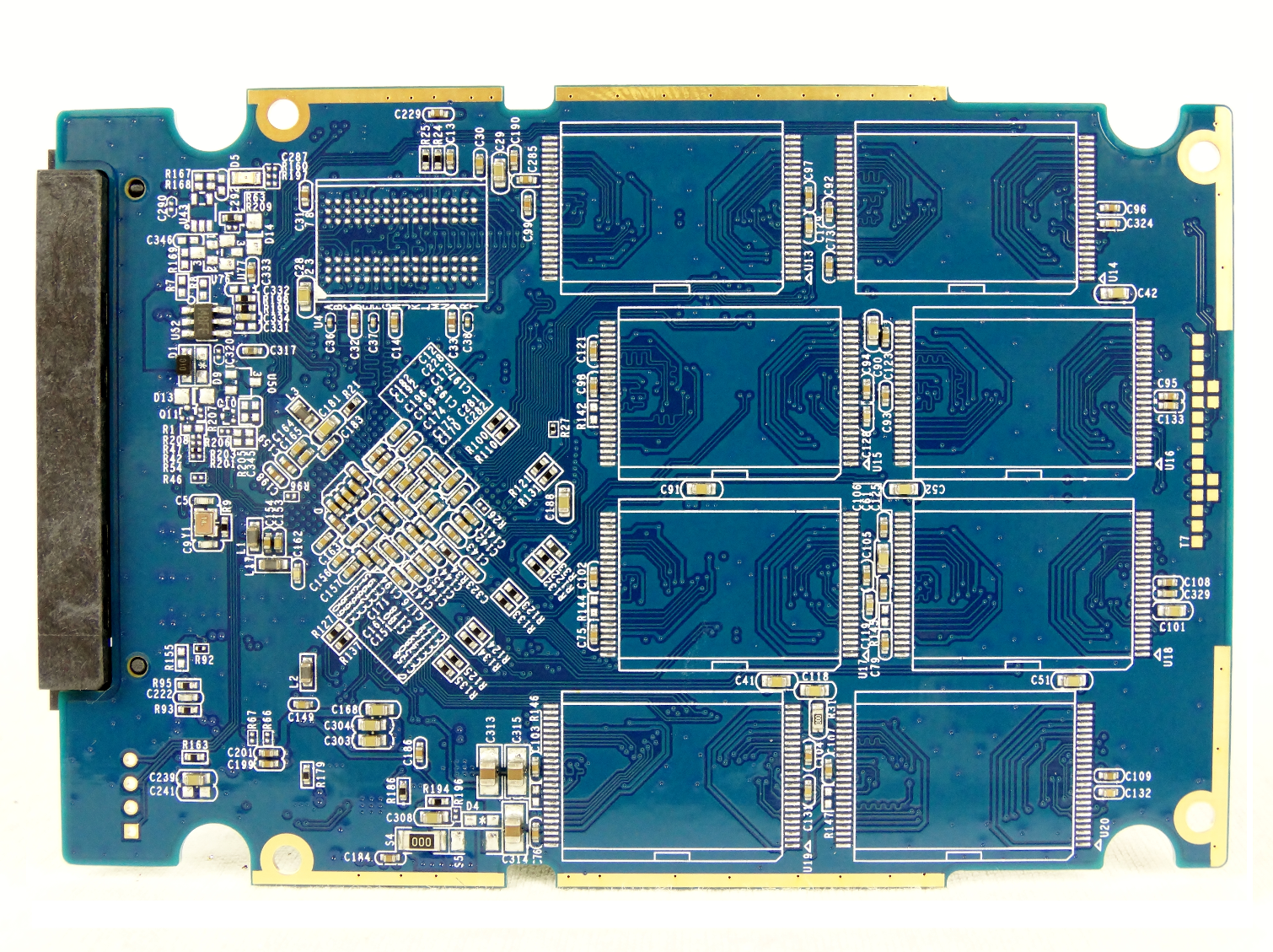
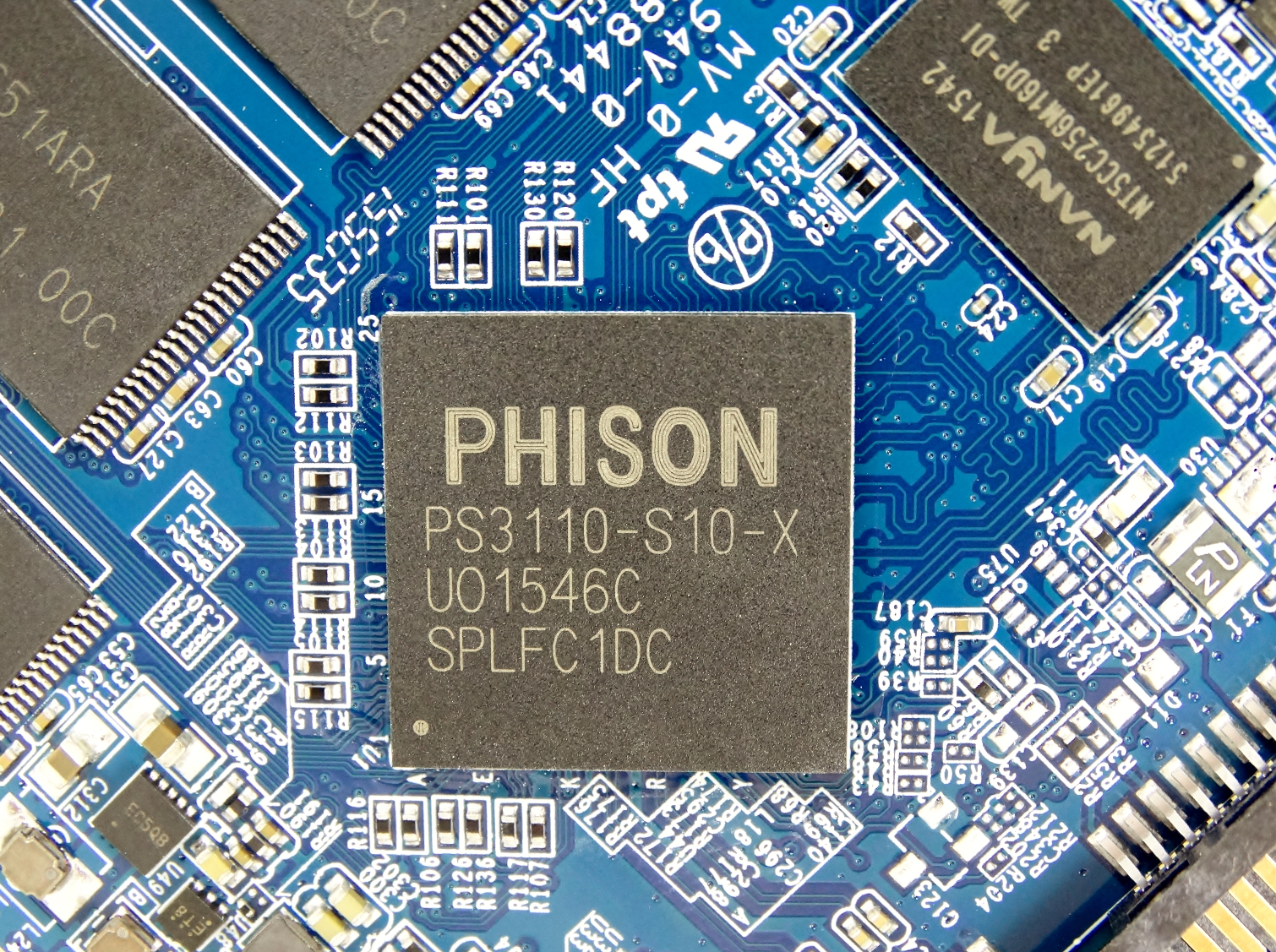
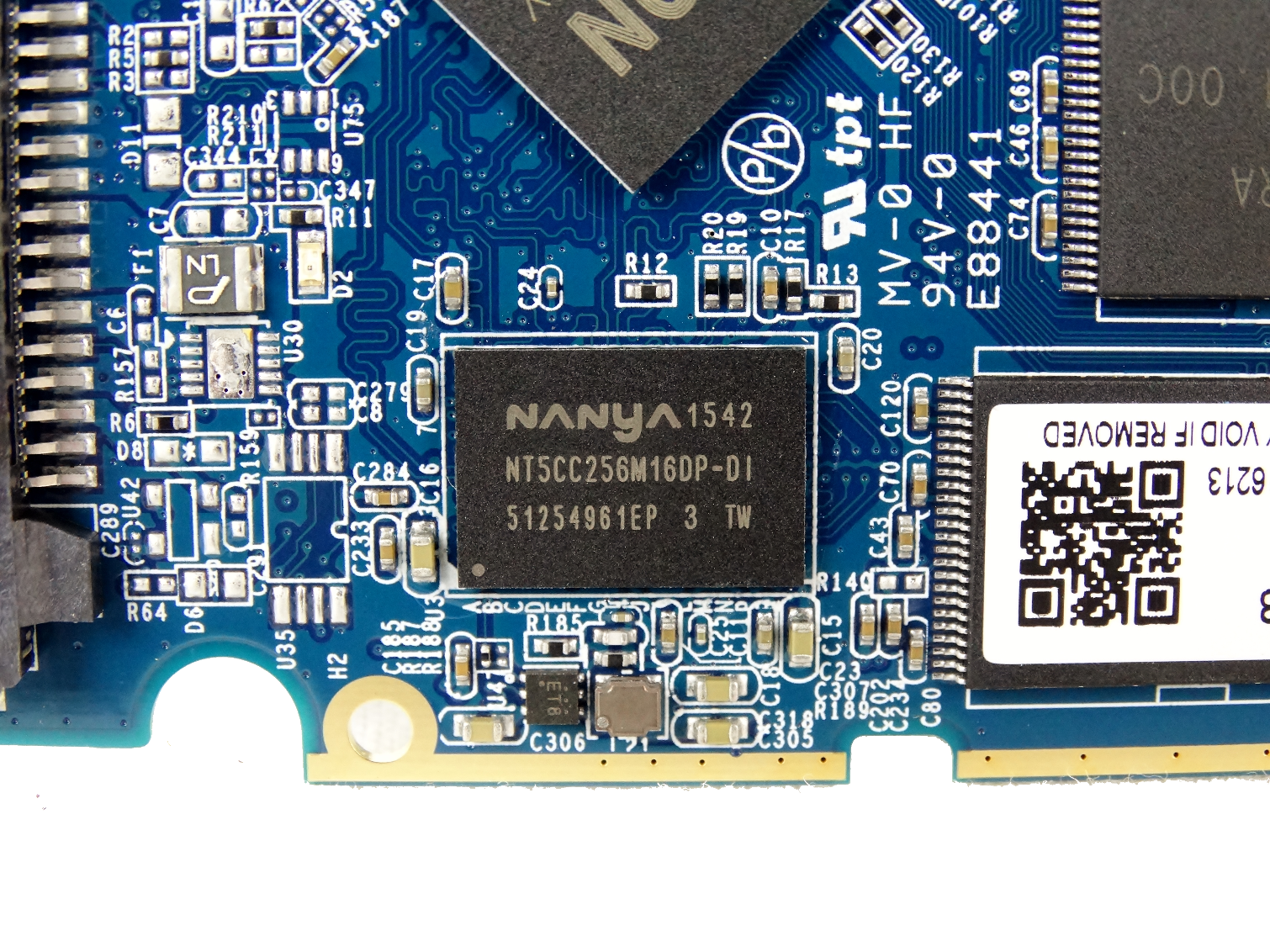
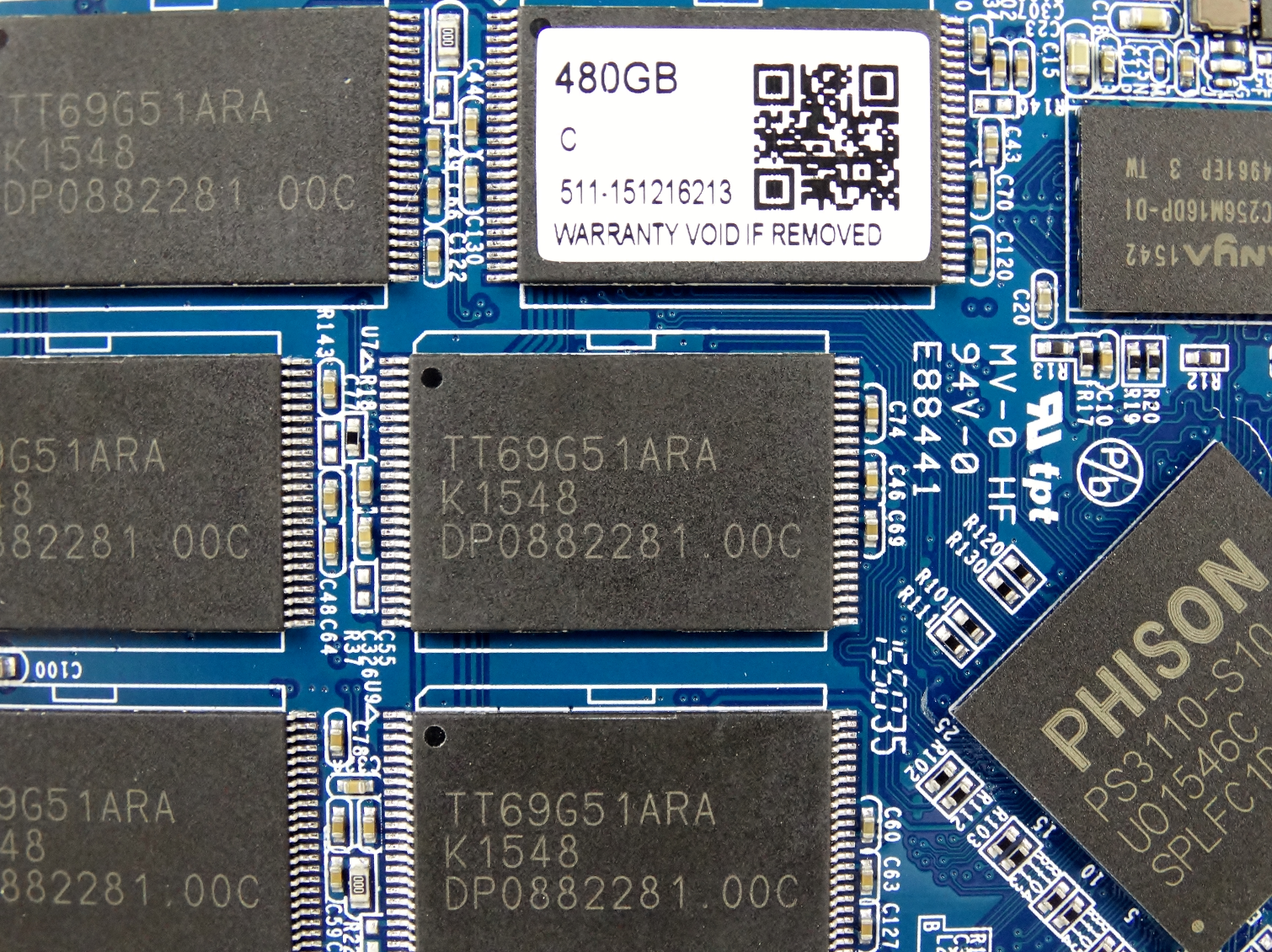
Both of the CS1311 drives we received for review (240GB and 480GB) host eight flash packages. The 240GB model uses a smaller PCB that it shares with the 120GB implementation, while the 480GB drive shares the same PCB as the 960GB flagship. The larger drives in each of the two groups simply populate more of the pads with flash packages.
The printed circuit boards appear to be identical to Phison's reference design. We've tested several SSDs with the S10 controller now, both with MLC and TLC NAND. Thus far, we haven't encountered any issues with them, nor have we heard any complaints from actual owners.
Current page: Specifications, Pricing, Warranty And Accessories
Next Page Four-Corner Performance Testing
Chris Ramseyer was a senior contributing editor for Tom's Hardware. He tested and reviewed consumer storage.
-
cknobman Another one bites the dust.Reply
Sorry but I cannot see much of a reason to go with anything besides the Samsung right now.
-
2Be_or_Not2Be Thanks, Chris, for showing why we shouldn't buy this "one-step-back" SSD.Reply
It reminds me of when Honda introduced their new (new at the time) Insight hybrid. If you don't beat, match, or at least get very, very close to the market leader's (Prius) performance, you're not going to do very well with that model.
These "new" SSD models that have serious shortcomings aren't even worth purchasing for the price-savings over the EVO. -
3ogdy Yaaaaaaaaaaaaaaaaaaaaaaaaaaaaaaaaaaawn.Reply
There are so many players and products on the market in the SSD space right now that releasing more makes no sense unless there's anything special about it. They're all capped at SATA 6Gbps and performance sacrifices aren't worth the price difference ($7?!). I remember back in the day when SSDs were interesting. Now announcing a new SSD is like announcing a brand new higher-clocked Pentium IV CPU.
That's without even considering the already boring pricing on these things. Samsung's been selling the 500GB EVO for around $150 for way too long. Thankfully, they've come up with V-NAND, otherwise SSDs feel like '90s products already. At least 10 years on the market and no progress (thank you, SATA). Wake me up when 500GB drives are sold for less than $100 and then, maybe then, we could get this whole turtoise of an industry just a frucking bit forward. Until then, SSDs are not worth reviewing, except for a new case design they could feature. Meh. -
jojesa Most users wont see the difference in performance. I have installed both SSDs on the same Dell Latitude model and they bootup time, apps loading and shut down time looks exactly the same. I cannot tell the differences.Reply -
zodiacfml Please don't praise the Samsung too much as we don't want them monopolizing the SSD market. I think they are squeezing the prices down to prevent competitors from growing.Reply -
Jack_565 I would buy this just for the outward appearance of the SSD, if it goes on sale then i might consider one.Reply
Makes me wonder why cosmetic SSD Skins/Cases aren't a thing, ignoring voided warranties. -
mapesdhs Again nothing to compete usefully with the 850 EVO, though at least in the UK pricing for 850 EVOs has been going up a lot since xmas, especially the 250GB which reached a low of 53 UKP over the holiday season, but now is back right up to over 70 UKP. The 500GB has been more stable, and better value, but IMO a "good" SSD like the 850 EVO 500GB is not dropping below 100 UKP here because it doesn't need to. This happened before with the Samsung 830 a few years ago, people were happy to pay a lot more than the 125 UKP price offered by one UK seller for a couple of weeks (they sold over a thousand units), so pricing for 256GB models in general went up for several months.Reply
What happened to the competition SanDisk said they were going to bring to the market? I'm sure toms reported a couple of years ago that SanDisk was planning an 8TB model reasonably soon.
